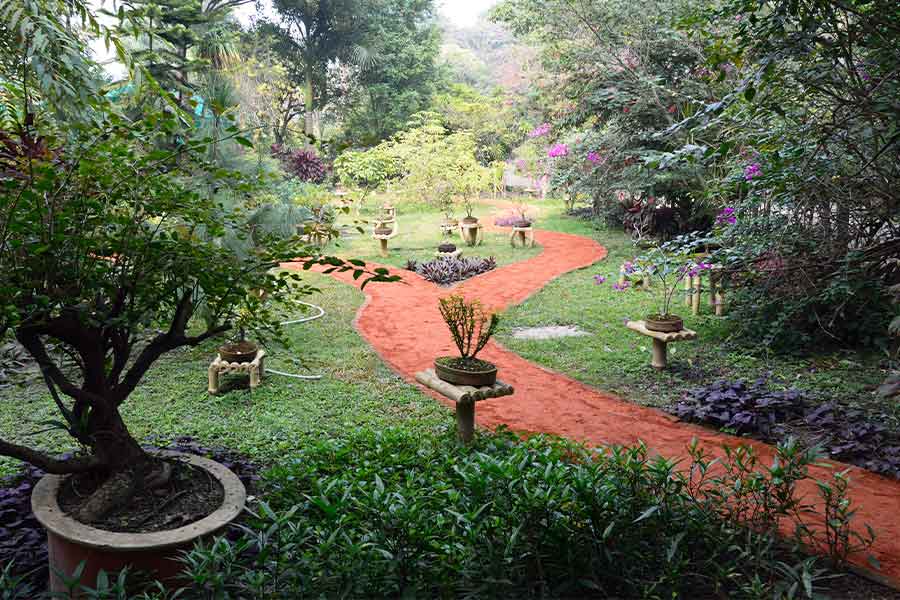Chlorophyll is the beating heart of the world of plants. But in the case of human beings, it could well be argued that mankind would not survive without chlorophilia — an organic and magnetic need of the human race to be surrounded by plants. Perhaps the trauma of eviction from that fabled Garden of Eden was, indeed, intergenerational for the species. For a scrutiny of civilisation would reveal that having survived the wild as a primitive race, mankind — in its course of evolving into its bhadralok avatar — continued to be besotted with the dark and lovely woods in their miniature form — in other words, gardens. The Hellenic culture thus waxed eloquent on Babylon’s Hanging Gardens, a tiered, terraced realm of supposedly wondrous flora: modernity, too, has responded to Hellenic sentiments by according the Hanging Gardens a pride of place among the Seven Wonders of the world. But Babylon does not have a monopoly when it comes to the gardens of earthly delight. The French would point to their Gardens of Versailles or, indeed, the one that the painter, Claude Monet, created in Giverny and claim them to be superior. The British stiff upper lip would quiver on hearing the French claim: could there be anything more earthly or delightful, the Englishman would counter, than the Royal Botanic Gardens of Kew? The Dutch would have none of it, pointing to the riot of colourful tulips in Keukenhof. It is possible that all hell would then break loose with Indians — but not their government — clamouring for the Mughal Gardens, Italians crying themselves hoarse in favour of Florence’s Boboli Gardens, the Japanese pressing the case — quietly — for Shinjuku Gyoen, the South Africans raising placards with ‘Kirstenbosch Botanical Gardens’ written on them and so on and so forth.
Of course, April is not really a cruel month to debate — argue — about gardens. In fact, with spring settling in, April is also observed as National Gardening Month. It now appears that the world of scholarship is taking notice of all the hullabaloo but here too, typical of human society, opinions continue to be divided. One school of thought, for instance, argues that gardens are, in fact, humanity’s spiritual shelter, a kind of a reflex go-to space, given the dismal reality that is of its own making. It is a realm where pleasures — aesthetic, fantastical, corporeal — intermingle: in fact, there is a rather hopeful undertone that even suggests that the human ability to mine its imagining of the planet as a vast, fecund, pastoral sphere could be fundamental to the battle against
ecological Armageddon. The other view is cynical, positing the garden as a metaphorical expression of civilisation’s primeval desire to dominate nature. It also suggests that some of the gardens of yore that are feted by conservationists and tourists alike, such as the Gardens of Versailles, are symbolic of embedded inequities in social class and power.
This fierce intellectual engagement, though fractious, is welcome. It is a testament to man’s ability to endow the seemingly mundane with richer and complex meaning. The outcomes of such reflections are at once rich, sublime and often mysterious, a bit like the gardens themselves.










